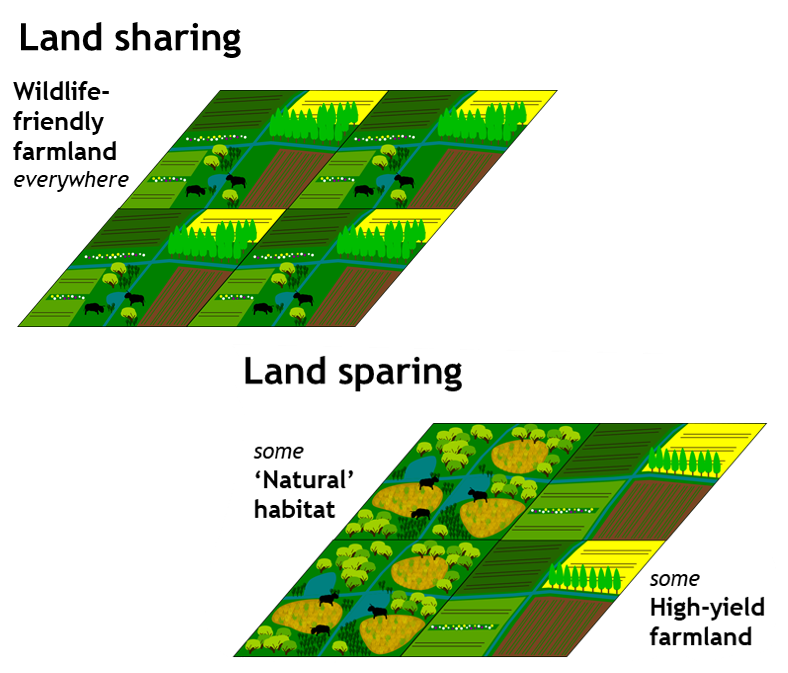There has long been debate in ecology over whether the best environmental outcomes can be achieved from deintensifying agriculture (eg reducing agrochemical inputs) to share land with nature at a broad scale, or from 'sustainable intensification' of production to maximise yields on farmed land in order to spare other land elsewhere in the same region entirely for nature.
Demand for agricultural products continues to increase, and land use change from forest or grassland to agriculture is incredibly damaging to wildlife and to climate change through loss of stored carbon. Any action that reduces production can be held to incur indirect land use change (ILUC), with impacts on biodiversity and carbon loss.
Tim Searchinger and colleagues argue that any land use practice that isn't maximising production can be held to have an 'Opportunity Cost', because it implies that more land is required to sustain production, increasing pressure on ILUC or reducing the opportunity for land to revert back to nature to store carbon.
The three compartment model advocates a solution where land use is split between full production, kept for nature, or grown under agroecological principles. This approach has been promoted by the National Food Strategy with development of a Land Use Framework.
See a perspective on Land Sparing on Cambridge Uni website, with video below:
The European Union's Farm to Fork strategy assumes more of a land sharing approach, by aiming to reduce pesticide & fertiliser use across wide farmed areas.
If you would like to contribute to this Topic click 'Ask to Join' orange button, or comment below.



